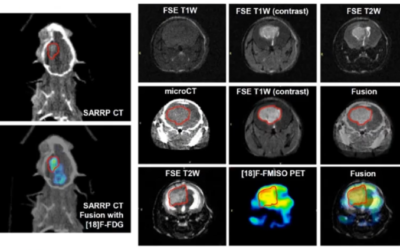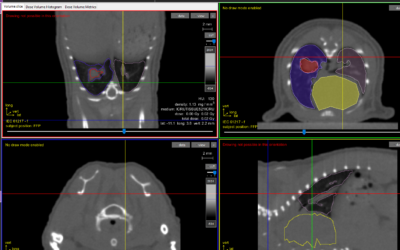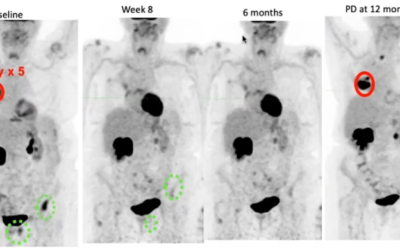
Tumor hypoxia reduces the effectiveness of radiation therapy by limiting the biologically effective dose. An acute increase in tumor oxygenation before radiation treatment should therefore significantly improve the tumor cell kill after radiation. Efforts to increase oxygen delivery to the tumor have not shown positive clinical results.
In their paper “Papaverine and its derivatives radiosensitize solid tumors by inhibiting mitochondrial metabolism.” Benej M, Hong X, Vibhute S, Scott S, Wu J, Graves E, Le QT, Koong AC, Giaccia AJ, Yu B, Chen CS, Papandreou I, Denko NC show that targeting mitochondrial respiration results in a significant reduction of the tumor cells’ demand for oxygen, leading to increased tumor oxygenation and radiation response.
They identified an activity of the FDA-approved drug papaverine as an inhibitor of mitochondrial complex I, by delivering 5 Gy radiotherapy using the Small Animal Research Radiation Platform. They also provided genetic evidence that papaverine’s complex I inhibition is directly responsible for increased oxygenation and enhanced radiation response. Furthermore, thye describe derivatives of papaverine that have the potential to become clinical radiosensitizers with potentially fewer side effects.
Importantly, this radiosensitizing strategy will not sensitize well-oxygenated normal tissue, thereby increasing the therapeutic index of radiotherapy.
This Xstrahl In Action was adapted from a article found on a National Library of Medicine website.






